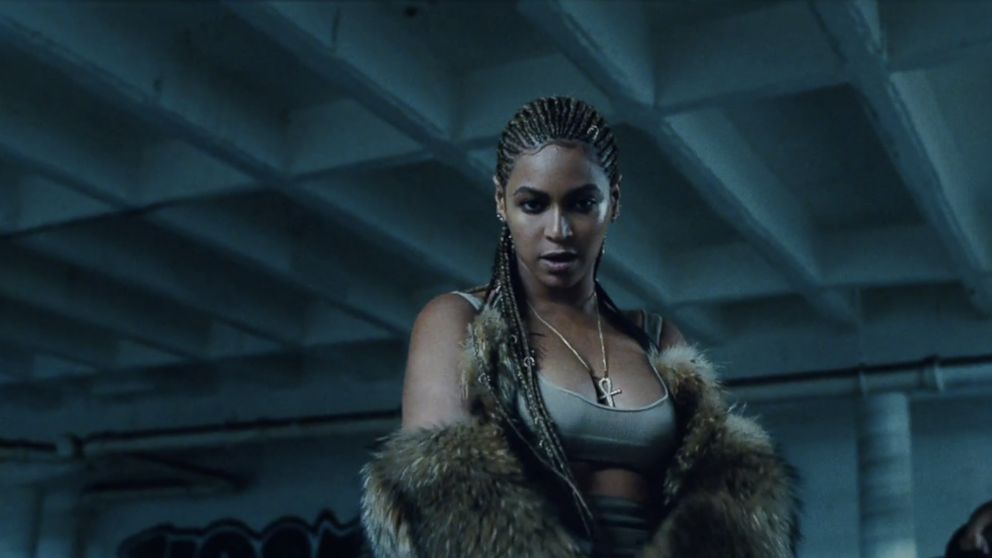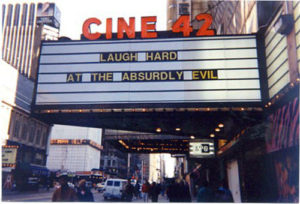Did you hear? Beyoncé just sampled Zeppelin. She just teamed up with Jack “Howlin’ Blues” White. She’s got a track on her epic, wildly adored new record, “Lemonade,” that sounds far more like a stadium rock anthem (“Freedom”) than killer rap slam, despite the manic verbiage of the great Kendrick Lamar. Hell, even Father John Misty is on there, somewhere – and he’s more white bearded hipster bro than God.
Do you see what’s happened? Beyoncé just made it safer to, you know, love Beyoncé. In public. For white guys. For classic rock-loving dads and artisan beer alterna-geeks and guitar-shredding dudes of a hundred different strains – in other words, an entire sub-class of hip hop-ignorant white males who, until now, could only stand around in awkward embafflement as their ecstatic GFs danced like madwomen to club remixes of “Single Ladies.”
But all that’s changed. White males from here to Vermont can now crank up “Don’t Hurt Yourself” and “Freedom” from the new record and turn to their bros and their GFs and say, “Hey, you know that’s Jack White, right?” and “‘When the Levee Breaks‘ is totally balls-out awesome so, you know, I’m cool with – what’s that you call her? – yeah. Bey. Awesome record. Yo.”
They can say that now. And not get slapped. Much.
I mean, right? Have you heard this record? Never mind that: Have you seen this goddamn record? It’s gorgeous, mesmerizing, otherworldly. More fire and spit than Janis Joplin, more swagger and strut than the Stones, more sweat and smashed glass than Metallica, more moody Southern gothic imagery and haunted, moss-dripping atmosphere than the cover of “Sabbath Bloody Sabbath,” more dramatic, slow-motion stares straight into the camera than eight billion girlselfies on Instagram, combined. This sh-t is for real. Yo.
And it must be noted: Jack White and Zep don’t so much as appear on the record as serve as tools, mere background effects for Beyoncé’s – excuse me, Bey’s – hyperlucid dream-vision (and that of her expert team of cinematographers and dancers). As her fans say, it’s Bey’s world. We just wish we lived in it.

You ain’t listening to no average bitch, boy
Don’t worry, I get it. There isn’t much guys like me can contribute to the blockbuster Beyoncé/Jay Z marriage melodrama currently burning like a billion suns across the Internet. Speculating on how much “Lemonade” is specifically, even brutally autobiographical, guessing who ‘Becky with the good hair‘ is, or trying to address aspects of the black woman’s struggle? Not a discussion that wants, much less needs, my input.
What I can offer, and what Beyoncé just invited humans like me to do, is to note that something rather extraordinary just happened in pop music.
Which is: One of its biggest, most capable stars just ripped apart expectations, messed with her image, broke with her customary genre and, in so doing, whether she cared to or not (I’m guessing not, much), just reached further across a strange cultural divide, to let us all in.
And she just so happened to do it at a time when the world just lost one of the few virtuoso musicians whose cross-cultural, multi-genre appeal was damn near unprecedented, and whose work touched nearly every music-loving human on earth.
Springsteen just paid homage to Prince. Chris Stapleton did, too. David Gilmour threw “Purple Rain” into his epic “Comfortably Numb” guitar jam. Sufjan Stevens did Prince at Coachella. Even the weird keyboard player from goofy prog-metal act Dream Theater gave “Purple Rain” some love. And those are just the obvious examples.
In other words, when white guys from 25 to 70, from country to metal, all kneel before the altar of the tiny, black, cross-dressing, sexually devious, high-heeled supergenius, when it’s not only respectful but a kind of musical moral imperative, well, you know Prince transcended every label the culture threw at him.
Beyoncé isn’t quite there yet. At this point, she only appears to be dabbling in other genres. There’s a lot of calculation here. And she’s no virtuoso musician, as Prince was; she still requires dozens of top-tier collaborators, writers, beat-makers and producers to bring her vision to life. But oh, what a vision it is. And as a performer? Holy hell.
Me, I’m pleased to announce I was already a Beyoncé fan well before “Lemonade.” Her 2013 Super Bowl halftime show ranks not far behind, well, Prince himself, as one of the greatest ever. Her videos and “visual album” concepts are downright sublime. Her fearlessness, her creative output, her obsessive (Prince-like) control over her artistic vision, her ability to defy expectations and upend industry norms – it’s all kinds of inspiring. She’s a badass sans pareil.
I’ve just never bothered much with, you know, her music.
But “Lemonade,” to restate the obvious, is different. There’s no putting a ring on it, there’s no drunk in love, there’s no wishing she was a boy. This is all “suck my balls” and “who the f-ck you think I am?” This is fire and shattered glass, blood and rage, pain and redemption and love, love, love. Hey, I know those themes. Don’t we all?
Sure, it’s all soaked in black female empowerment, infidelity, finding your voice in a strained and perhaps abusive relationship. So what? These are universal themes. Betrayal, fury, reconciliation, love? No one is immune.
But if one theme dominates this iteration of Beyoncé, it might be defiance. As one reviewer put it, “Lemonade” is Beyonce’s middle-finger period.
And there’s the gist: It doesn’t matter if that finger is aimed at your cheatin’ spouse, your crazy ex, your nightmare boss, your abusive parents, your stifling home town, the cops, racial injustice, the oppressive church or your multimillionaire mogul rapper husband who may or may not have banged a hairdresser on the last tour.
That defiant middle finger? That’s pure rock n’ roll, baby. We can all relate to that.
Read more here:: Beyoncé for straight white boys



